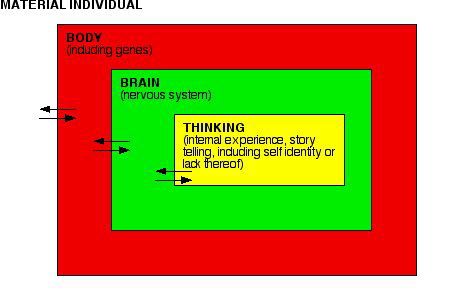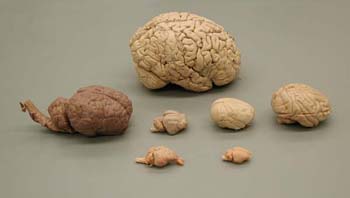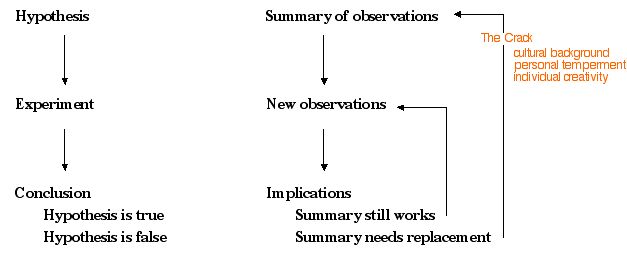No Unwobbling Pivots in Empiricism/Induction Either |
 |
No Unwobbling Pivots in Empiricism/Induction Either |
 |
|
Any given understanding is a distinctive material state of the brain States of the brain are influenceable by
|
 |
Strengths and limitations of science (more generally, of empirically/inductively derived understanding)
| A traditional perspective | A loopy story telling perspective |
|---|---|
 | |
| Science as body of facts established by specialized fact-generating people and process
Science as successive approximations to Truth
| Science as process of getting it less wrong, potentially usable by and contributed to by everyone
Science as ongoing story telling and story revision: repeated making of observations, interpreting and summarizing observations, making new observations, making new summaries ... individually and collectively Science as skepticism, a style of inquiry that can be used for anything, one which everybody is equipped to to/can get better at/be further empowered by, and contribute to - a way of making sense of what is but even more of exploring what might yet be |
|
On to story (loop 2) and intersubjectivity (loop 3)